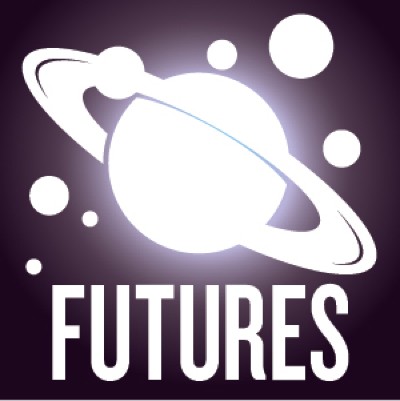2090 (1680)
Future means something different now.
She writes it longhand, on parchment. Later, she will press the pages into the white square in the shed out back, and the text will be whisked away.
Forward, as it turns out, was the wrong direction.
Her handwriting is clumsy. Even after six years, her fingers reach for the sensation of buttons.
*****
She reads Robert Hooke’s 1665 Micrographia. She sits beside her daughter’s bed and shows her the drawing of a bug the size of her head, watches the awe on her face.
In the sky outside, there is a shimmer of silent engines and wings, and then it’s gone.
“What is it?” Ella says.
“A dove,” she whispers.
It’s a funny thing, this balance of ignorance and wonder. Her daughter has only ever known this: the rhythm of waking and working, the animals and garden.
Ella coughs, turns her head.
In addition to her regular column (for the public) and report (for research), she writes Ella still unwell.
*****
It was seven years ago when the research team approached her. She was a well-respected journalist, freshly divorced. Her daughter was one year old.
The Rewinding Project, they said. Twenty communities isolated in rural North America, living within the technologies and lifestyle of a select decade. Supported in their growth towards self-sufficiency, with the goal of identifying the optimal balance of carbon consumption and human quality of life.
It felt good, knowing that she was doing something useful. It wasn’t for everyone, but it had been good for them.
“It will never work permanently if people know what they’re missing,” Oman said, on one of the rare times when they broke the rules and discussed the project.
He was a historian before he came here; the circular nature of it all interested him.
“I don’t know,” she said. “Bring enough theatre kids and it might work.”
*****
Ella’s chest now makes a frightening sound, like the whooosh of bellows.
The two doctors in town usually handled their medical needs. Last year, an older woman had died while they sat by her bedside. It was beautiful, ordinary. She had written about it in her column.

Read more science fiction from Nature Futures
This is different. She locks herself in the shed and presses the emergency communication button. It is bitterly cold.
The button glows, and then fades.
Silence. Static. Silence again, but a different kind.
“I know you can hear me,” she says. “I’ve sent a hundred messages.”
Mira’s voice on the other end is brisk, low. She says, “I know.”
“Do you? She can barely breathe.”
“It’s not within our carbon budget,” Mira says. “If all we can show for the project is dependence on input … you have twenty-first century medical knowledge —”
“We don’t have antibiotics.”
“You agreed to this. Even this call is compromising —”
“Send someone down,” she says. “Now. I swear, I’ll stop writing.”
Mira’s voice is thin. “You don’t want to stir things up right now. Trust me. They’ve been pushing to move all sites to phase two. We’re walking an incredibly thin line.”
“Phase two?” she says. “Look, I don’t care what they want.”
But the white square has gone dull again, and no matter how many times she presses it, it does not connect.
*****
She gets her boots and spreads the map out on the table. They aren’t supposed to have this, but have kept it hidden just in case.
“What’s nearest?”
Oman traces the forest and the patterns of the rivers with his wrinkled finger. “As far as I know, the 1790s group. But even that’s a full day of riding. Penicillin was 1920s, wasn’t it?”
They procure food for her, the best horse.
“I love you,” she whispers into her daughter’s hair.
“Look after her,” she snarls to the others.
*****
Later, in the woods, the rain in her face, she thinks about time. How this sensation of looking bleakly out at the world and feeling the water in your throat has never, in a thousand years, really changed.
The gas lights of the 1790s settlement are, for a moment, bewildering. So yellow. She slumps against a gate.
A smiling woman in an apron finds her. In a moment she is whisked over to a fire. Children press around them.
“I need medicine,” she says. “Which team do you report to?”
“You’re confused, love,” the woman says. “How long were you out there?”
“Antibiotics,” she repeats. “Please.”
“Have some tea,” the woman says. Her accent is southern. There is the old scar of a piercing on her lip.
She tries another house. In half an hour the whole town is awake. They are all different ethnicities, different ages.
“My daughter is ill,” she says.
This they understand. They produce murky bottles, plasters, herbs.
“No!” she says. “Not these toys.”
They stare at her. The rain pours around them. She turns to the man nearest her.
“How long have you been here?”
“In town?” he says. “A long while.”
“And before?”
He looks away to hide the moment of confusion. And she understands. It will never work permanently if they know what they’re missing, Oman said.
Phase two. Backward, not forward. No longer remembering what they have given up. Nothing existing but the rhythm of their lives.
She wonders if this was always the plan, wonders how it was done, wonders if they agreed to it. Wonders what it means, to do it without knowing.
*****
“I’ll come back for you,” she says, to the puzzled faces.
She stumbles outside. The rain scrapes her face like nails. Oman’s spidery writing has marked the 1920s site, far enough away that the map has to be unfolded to see it.
She rides.
The water erases time, erases everything.
